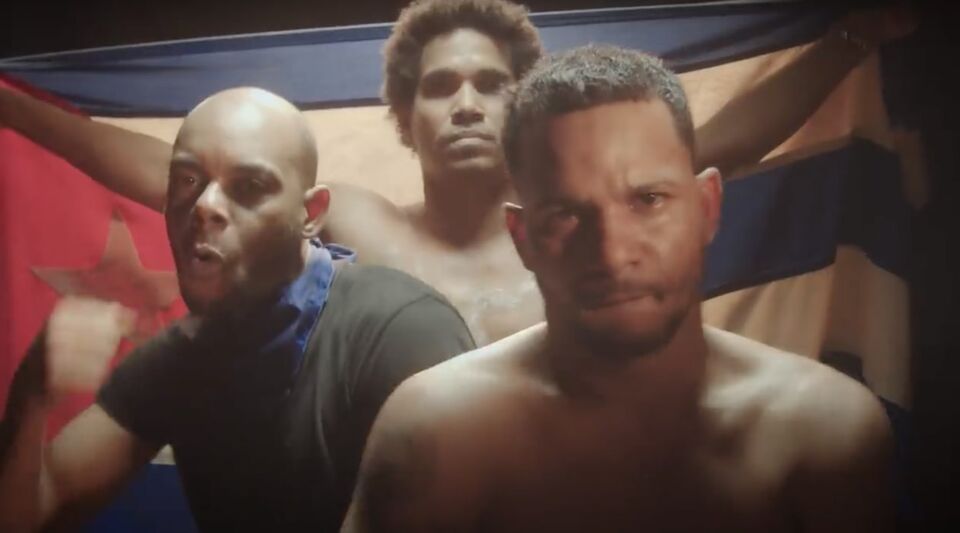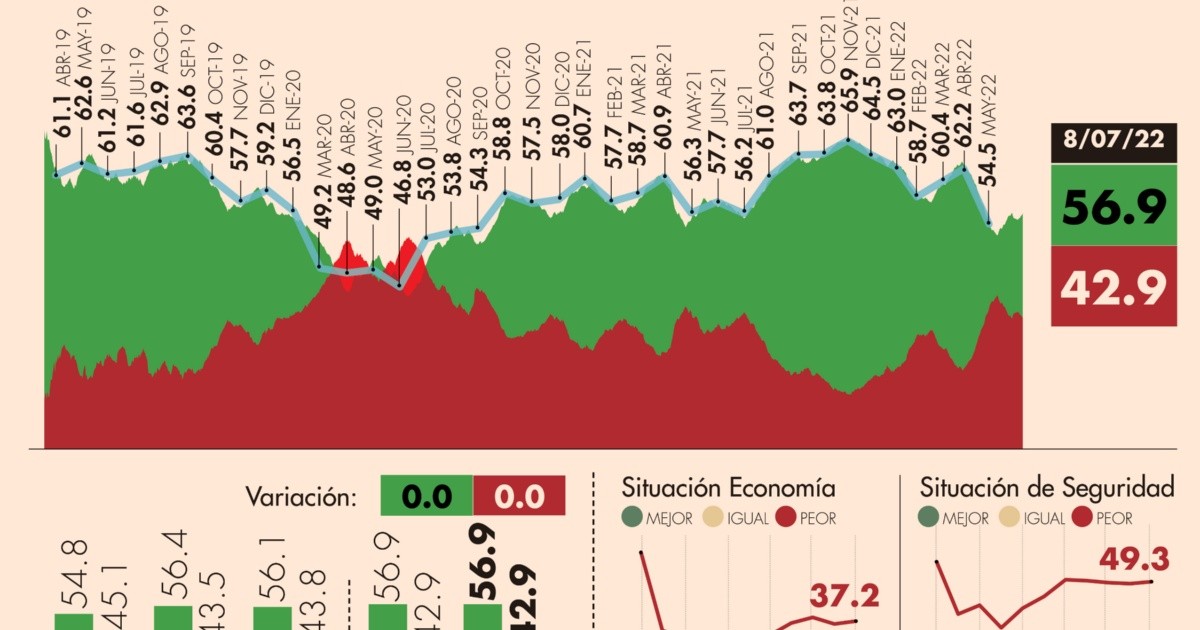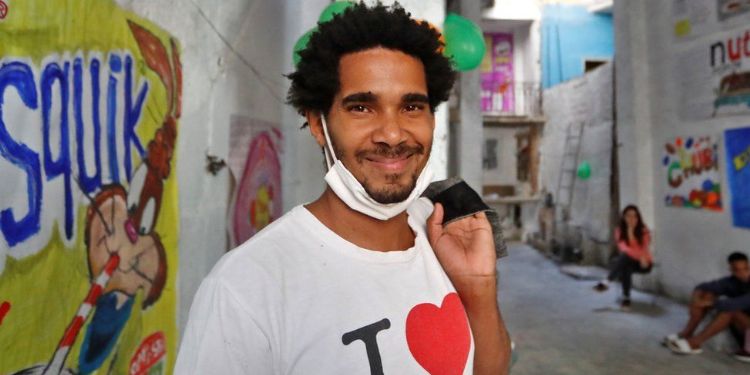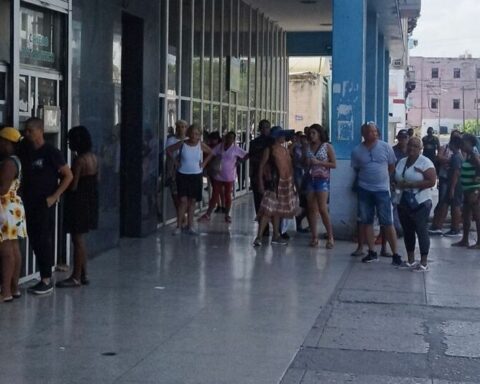The artists and opponents Maykel Castillo osorb and Luis Manuel Otero Alcántara refused to appeal their sentences of nine and five years in prison, respectively. In addition, the latter has announced that he began a new hunger strike – the third since he was in prison – on July 4 to demand his immediate and unconditional release.
“After a few days thinking about it carefully, Maykel has decided not to appeal the 9-year sentence that was unfairly imposed on him and ignoring all international claims,” he says. a statement posted on his Facebook profile.
“After a few days thinking about it carefully, Maykel has decided not to appeal the 9-year sentence that was unfairly imposed on him and disregarding all international claims”
According to the text, Osorbo keeps in touch from prison with regular calls and has asked to say that “he will no longer lend himself to that circus.” “The whole world saw the caricature that a dictatorship makes of a judicial system and how coercion, in the midst of these events, not only makes them exist behind closed doors, but also expands to the streets and social actors that can be a threat. , even physically far from the scene of the events”, continues the post.
The rapper began in November 2021 to have “vomiting, fever, sweating and a lot of fatigue” and is sick without having received a reliable diagnosis, according to his relatives. “Maykel and all of us who accompany him are demanding that he be released and that he leave Cuba to be treated by a doctor and to save his life.”
The message indicates that Osorbo recently wrote a letter in which he spoke “of everything that would have to happen for Cuba to enter the 21st century,” a vocabulary that, according to the text, is also used by Otero Alcántara and the activist Omara Ruiz Urquiola.
For his part, Otero Alcántara has not specified any reason why he refuses to appeal, although it is presumed, by the statement released by the San Isidro Movement, which is the same as that of Osorbo.
The text denounces that the conviction reached the press before, through the Cuban Prosecutor’s Office, than to the knowledge of the interested party. “Luis is not allowed to socialize with other prisoners, or go out to the patio to sunbathe. He remains confined in a cell with another detainee. The only sun he takes in is through the bars of his cell, no matter how dramatic this description sounds. “, Add.
The post also maintains that during the trial State Security blackmailed the artist by telling him that if he did not accept a forced exile agreement, Maykel Osorbo would not be able to leave Cuba to be treated for his health problem either.
The post also maintains that during the trial State Security blackmailed the artist by telling him that if he did not accept a forced exile agreement, Maykel Osorbo would not be able to leave Cuba to attend to his health problem either.
The trial against both artists —considered prisoners of conscience by Amnesty International (AI)— took place on May 30 and 31 in the Court of the municipality of Marianao de La Habana.
Representatives from European embassies tried unsuccessfully to gain access to the hearings. During those days a strong security operation was deployed around the court.
Otero Alcántara was punished for the crimes of outrage against the symbols of the country, contempt and public disorder, while Osorbo was convicted of contempt, attack, public disorder and defamation of institutions and organizations, heroes and martyrs, according to the Attorney General’s Office the Republic (FGR) on June 24.
The FGR then assured that the court considered it proven that Otero Alcántara had “the express intention, sustained over time, of offending the national flag, by publishing photos on social networks where he is used in denigrating acts”, alluding to drapeaua performance in which the leader of the MSI used the ensign on his body for a month.
The rapper was also accused of making “direct interventions from his personal profile to dishonor the role of law enforcement officers in society.”
In addition, he argued that Osorbo —co-author of the winner of two Latin Grammys and anthem of the 11J protests— Homeland and Life— “used false images” to “offend, affect the honor and dignity of the country’s highest authorities.” The rapper was also accused of making “direct interventions from his personal profile to dishonor the role of law enforcement officers in society.”
The Prosecutor’s Office also collected previous facts in its petitions, such as “offensive writings against the flag” on the networks and publication of memes on Facebook to “ridicule and discredit” Miguel Díaz-Canel.
In addition to them, the Court sanctioned Juslid Justiz Lazo and Reina Sierra Duvergel with 5 years in prison for attacking opponents Félix Roque Delgado and 3 years of correctional work without internment. He considered it proven that all of them had helped Osorbo to resist his arrest.
________________________
Collaborate with our work:
The team of 14ymedio is committed to doing serious journalism that reflects the reality of deep Cuba. Thank you for joining us on this long road. We invite you to continue supporting us, but this time becoming a member of our newspaper. Together we can continue transforming journalism in Cuba.








